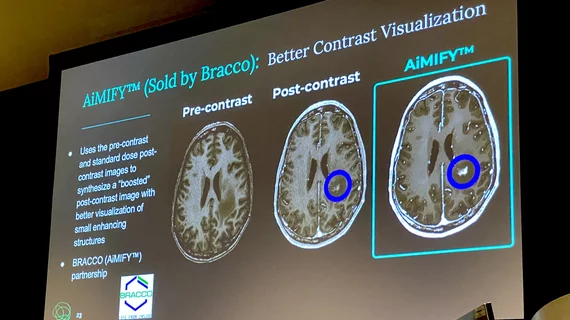FDA has approved over 1,000 clinical AI applications, with most aimed at radiology
Dozens of new artificial intelligence-enabled products have made their way onto the United States Food and Drug Administration’s list of approvals.
That brings the total number of cleared AI clinical applications to just over 1,000. Radiology leads the way in approvals by a mile, accounting for more than 70% of all clearances.
The latest update brings the total number of radiology-related FDA-approved applications to 758, with 35 new products being added to the list since August. Cardiology is next in line with 101 approvals, plus an additional 60 that also fall under the umbrella of radiology. Neurology sits at a distant third, with 35 listed approvals.
Notable companies in the most recent roundup include United Imaging, Avicenna.AI, Canon Medical Systems, Siemens, Subtle Medical, Nanox, Qure.ai Technologies, GE and more.
The amount of approved clinical AI applications has skyrocketed in recent years. At the beginning of 2023, there were around 500 approvals, but more than 200 were added to the list by the end of that year.
The FDA has increased its efforts to update developments within the AI space. Previously, the agency would update its list of cleared AI-enabled devices maybe once per year, but with new AI technology gaining approvals more often, the agency has increased the frequency of its updates. The latest list contains products that were approved between the beginning of September through the end of December.
Although reimbursement for the use of AI in radiology is lagging, the potential for payments has shown signs of life recently. In October, the Centers for Medicare and Medicaid Services (CMS) updated its payment policies related to the use of AI-enabled platforms that assist with assessing CCTA exams, determining that AI coronary plaque assessments are “considered reasonable and medically necessary as a diagnostic study when the patient is eligible for CCTA.”
Just a handful of AI applications are currently eligible for reimbursement, but many experts in the field have signaled that payment will eventually follow implementation.
The entire list of clinical AI approvals is available here.

